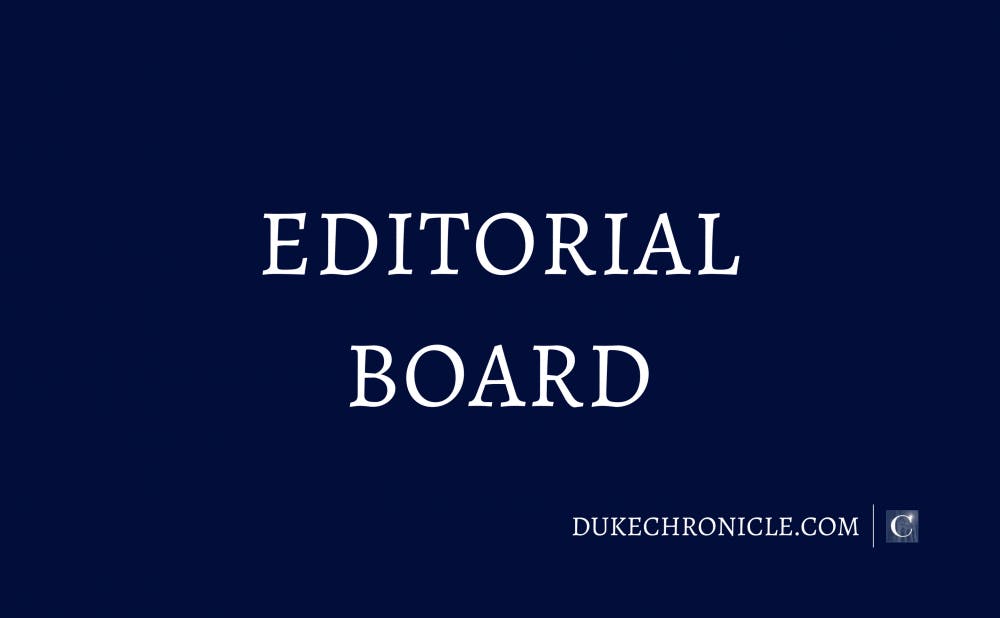Early this month, news broke of a hefty monetary donation to Duke’s Center for the History of Political Economy from the Charles Koch Foundation. This $5 million grant was given for expanding faculty at the center, as well as building “relationships with students and partnering with the Rubenstein Library to hire a digital librarian.” While this may seem like an innocent investment in higher education to the average observer or politically apathetic Duke student, more malicious intentions of personal wealth accumulation lurk beneath the surface.
This generous grant is the latest move in a larger political strategy to redefine the political landscape through manipulating American universities. The goal is to uplift the scripture of the regressive taxation policies and free market fundamentalism that benefit the two wealthiest brothers on earth and their various estate beneficiaries. While the Charles Koch Foundation certainly isn’t the only entity weaponizing their money for political and monetary ends, this recent news item highlights the ways in which college campuses are increasingly mutating into ideological battlegrounds with wars bankrolled by wealthy, outside institutions.
Commonly known as the Koch brothers, Charles and David Koch are notorious multi-billionaires and owners of Koch Industries, a conglomerate of chemicals and petroleum companies, the second largest privately-owned company in America and—as the leading violator of the Clean Air and Water Acts—serial offenders against public health. Rather than comply with public safety efforts, the Kochs have instead launched a multi-decade crusade against progressive policies and have spent tens of billions of dollars supporting conservative activist organizations and political candidates under the guise of “deregulation” and supporting “free markets.”
In recent years, the Kochs’ attempt to co-opt our political system to financially benefit themselves has been successful, although not without intense scrutiny from politicians, journalists and political watch organizations. Their influence on our elections and political movements has been well-documented, notably by New Yorker investigative journalist Jane Mayer, author of 'Dark Money.' The Kochs, while fundamentally libertarian, have in recent years abandoned any pretenses of conservative intellectualism and have instead aligned themselves with war-happy neoconservatives, the alt-right and the Tea Party—all of whom could not be further from fundamental libertarian belief systems, but do champion massive tax cuts and abolition of verifiably positive public safety regulations that hurt Koch Industries’ bottom line. The Kochs’ unabashed and unapologetic alignment with unsavory political movements and characters reveal that, at the end of the day, the Kochs are far more invested in capital accumulation than any philanthropic ventures on campus.
While the Kochs’ strategy to flip state legislatures, gerrymander Congressional districts in favor of Republicans, empower union-busting politicians like Scott Walker and create a Republican-controlled House, Senate and White House—something that has not been done since the Great Depression—has played out well, the Kochs are now seeking new ideological battlegrounds where they can unduly influence and dominate. Institutions of higher learning fit the bill, and are seeing a staggering rise in chapters of conservative activist organizations that are backed by an alarming amount of Koch-connected dark money.
Of note is Turning Point USA, a group with more than 1,300 chapters in American high schools and colleges, that seeks to promote free market principles with an unlimited slush fund and the implicit support of education secretary Betsy DeVos. Though the promotion of the free market is also a seemingly benign mission statement, Turning Point has launched an all-out assault on the perceived liberal bias of higher education. This organization might operate under the auspices of encouraging civil discourse that doesn’t exclude conservative thought, but the organization instead thrives on creating chaos.
They do this by bringing in intentionally provocative speakers (many with large speaking fees) to college campuses and encouraging childish, performative stunts, including one chapter’s laughably ill-conceived plan for members to dress up in diapers to mock the concept of safe spaces.
Charlie Kirk, the group’s founder—a Trump supporter and, ironically, someone who has never been a student on a four-year degree-granting college campus—has been funneling petulance and immaturity into colleges across the country. Kirk, who has been mired in controversy over the organization’s unethical procedures and actions, including mishandling of sexual assault cases, is pouring money into chapters not only looking to host high-priced speakers but also those who have members running for student government. He is on record stating, “The only vulnerability there is, the only little opening, is student government association races and elections, and we’re investing a lot of time and energy and money in it.”
While TPUSA hardly misses an opportunity to out itself as embarrassingly inept at turning cultural tides—a charge that has even been leveled against the organization by one of their own members—the financial investments in campus elections is still extremely disconcerting given that student governments do possess some institutional power, including the ability to allocate funds collected from tuition “activity fees” to student groups. But perhaps even more worrisome is the role this plays in the larger Koch strategy to “vertically integrate” all parts of a university to send a certain sort of political message. This broader mission starts with strings-attached Koch donations to universities and academic departments across the country, which allow the Koch brothers to control the ideological messaging of research, faculty members and even course content, then extends to facets even as seemingly trivial as student government representatives.
The ideological baggage that follows massive financial investments in universities are indeed toxic and disproportionately harm society’s most marginalized groups. Duke is not exempt from the presence and material impacts of the dangerous policies being piped into campuses by outside entities under the guise of ideological diversity or politically-neutral grants. To that end, we must not continue to allow the lure of monetary contributions to mask the reactionary and regressive Koch-based political activism that threaten complete upheaval of economic and racial justice work that has been done on this campus.
Get The Chronicle straight to your inbox
Signup for our weekly newsletter. Cancel at any time.

